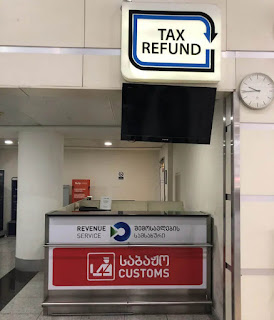Uganda, The Land of Avocados and Jackfruits
Tourism has declined in Uganda thanks to political unrest, the anti-gay bill boycotts, and Ebola & Marburg virus outbreaks. We found it peaceful and safe.
We travelled to Uganda to make a website for a backpackers hostel and campsite in Masaka and ended up doing also a site for a company offering safaris and tours in Uganda. The project was rather demanding as there are regular power cuts, Internet connection is erratic, and working is limited to daytime because of malaria mosquitoes. That meant a lot of waiting for us which we didn't mind.
Village life
We stayed in a little local village five kilometres away from Masaka town, enjoying walks in the jungle with the hostel dog, Odi, who is a mix of collie and German shepherd. The hostel had a nice veranda to sit down, relax and enjoy the green, hilly scenery around. The villagers were growing bananas, maize and coffee beans and had some animals including cows, pigs, goats, and chicken.
Food was amazing. We didn't expect to feast on avocado pasta in Uganda, but there were heaps of avocados that were as delicious as hash avocados in Mexico! The rainy season was just ending when we came so there were plenty of fruits as well including jackfruits, pineapple, passion fruits, papayas and of course various types of bananas. We also loved the local peanut butter, which is pure stuff made of peanuts and sesame seeds only. It doesn't contain any sugar, high fructose corn syrup or other toxic additives!
Christmas was a big celebration as Uganda in mostly Christian. There are also a minority of Muslims. During Idi Amin´s governance, Arab countries offered support for Uganda and in return they got a permission to spread Islam freely in the country. Mosques abound — nearly every village has one.
The weather was nice and cool in November-December, usually around 26 degrees Celsius when it didn't rain. The rainy days were surprisingly cold, but rains never lasted for the whole day. In the afternoon it was usually sunny again.
Mzungu treatment
Ugandans are very curious about foreigners. Everybody wants to say "Bye", "Hi" or "How are you?", and some of them also shout the m-word: mzungu. That can be annoying but we knew to expect it. We had got used to the mzungu treatment in Kenya and Tanzania six years ago. Mzungu treatment includes paying too much for everything. When we went to a computer shop to ask the price of a notebook hard disk, it was 900.000 Ugandan shillings (about US $249). Our work exchange host got a twice bigger disk for only 80.000 shillings ($22).
When using public transport, touts are harassing potential clients everywhere and demanding their share of the price. Their commission is, probably depending on the travel distance, around 2.000 shillings (US 56¢). They can be very persistent. When we had found our bus by ourselves and were sitting comfortably inside, one of the touts came inside and tried to convince us to move to another bus. After we refused, he cleverly lied to us that the bus was not going to Masaka at all, then he told that it will never leave, and finally he revealed that the engine is in such a bad condition that it will surely break on the way. We didn't buy his sales pitch and ended up comfortably in Masaka.
Declining tourism
Uganda is quite similar to Kenya except Ugandans are nicer thanks to the country being less touristy. Kenya and Tanzania draw most of the arrivals, while Uganda just gets the crumbs.
The number of incoming tourists dropped dramatically a few years ago because of political unrest, the anti-gay bill that prompted some Western countries to boycott Uganda, and Ebola & Marburg virus outbreaks in the Western Africa. Although the outbreak took place thousands of kilometres away, tourists were afraid to travel to Africa at all. Päivi had her doubts, too, after reading the news about the latest outbreaks, but naturally governments writing travel warnings want everyone to stay put and spend their money at home. Uganda will be a great disappointment for those seeking danger just like the Darién Gap was for us.
Those who do come here usually want to go for a safari or help locals by volunteering for example in schools and orphanages. Like elsewhere in the world, volunteering (or "humanitarian douchery") is a big business. Volunteers are usually required to pay dearly for the opportunity to help.










Comments